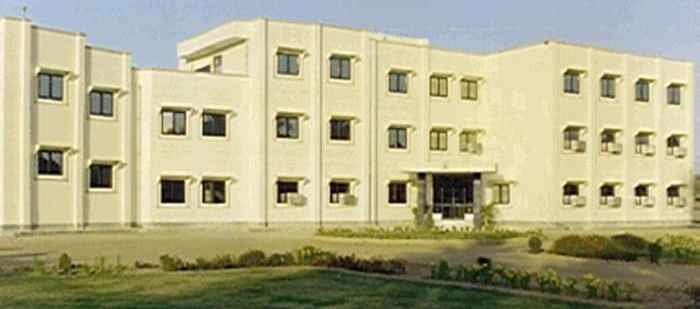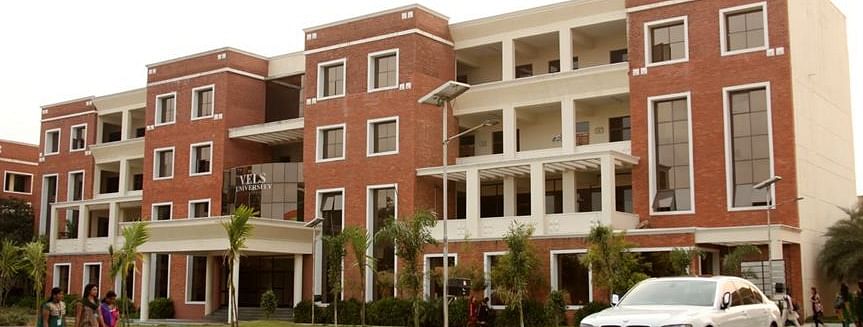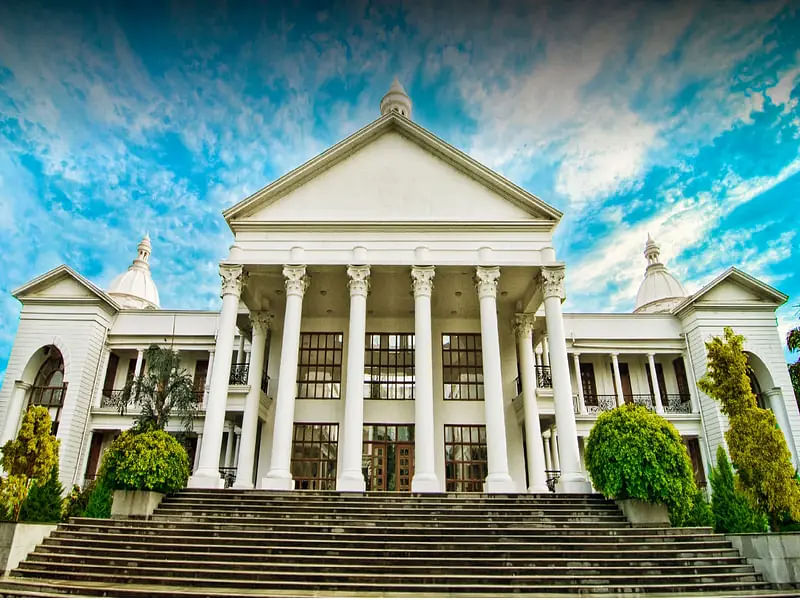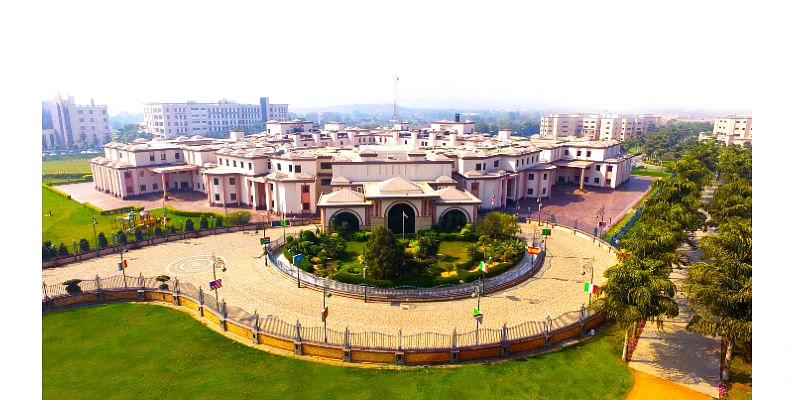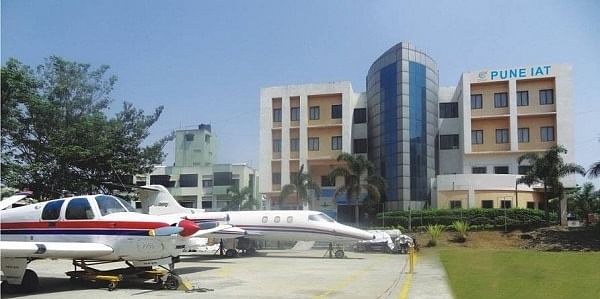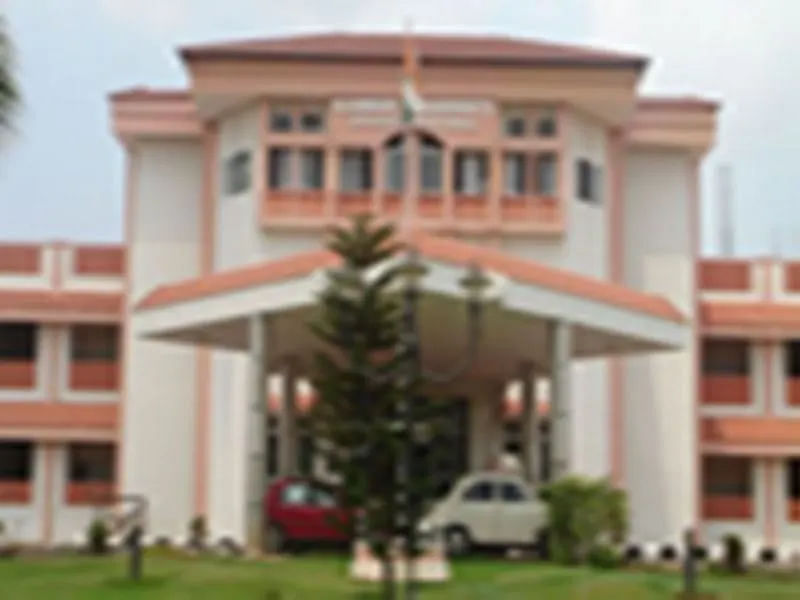B.Sc Aviation Syllabus and Subjects

The BSc Aviation syllabus is divided into six semesters consisting of both core and elective subjects. The course focuses on enabling students with the required knowledge in the core BSc Aviation subjects such as Air Navigation, Air Regulations, Meteorology, Aircraft and Engine, Aviation Mathematics, Aviation Physics, etc.
In addition to the core subjects, students can choose the elective subjects based on their preference such as Environmental Science, Personality Development, Indian Heritage and Culture, English Language and Communication Skills Practical, Computer Labs, etc.
BSc Aviation course equips students with the required skills and knowledge in designing and maintaining aircraft, helicopters, airline management, and air traffic control to ensure the aircraft works efficiently. The teaching methodologies involve seminars, workshops, hands-on practice, simulation training, etc.
Table of Contents
Semester Wise BSc Aviation Syllabus
The BSc in Aviation syllabus focuses on understanding the concepts of production and maintenance of aircraft, aircraft engines, aircraft science, etc. The course focuses on both fundamentals and skill-based subjects. The semester-wise breakdown of the BSc Aviation syllabus is given below:
First-Year BSc Aviation Syllabus
The BSc Aviation 1st year syllabus focuses on the foundation subjects such as Aviation Physics, Aviation Mathematics, Aviation Science, Aircraft Awareness, etc. Given below is the semester-wise list of First Year BSc Aviation Syllabus:
|
Semester-I |
Semester-II |
|
Air Navigation-I |
Air Navigation-II |
|
Air Regulation-I |
Air Regulation-II |
|
Meteorology-I |
Meteorology-II |
|
Aircraft and Engine -I |
Aircraft and Engine -II |
Second-Year BSc Aviation Syllabus
The BSc Aviation 2nd Year syllabus focuses on advanced topics in aircraft maintenance and air regulations such as Vertical distribution of Temperature, Development of Inversions, Pressure Variation with height, Altimeter Settings, etc. Given below is the semester-wise list of second-year BSc Aviation Syllabus:
|
Semester-III |
Semester-IV |
|
Air Navigation-III |
Air Navigation-IV |
|
Air Regulation-III |
Air Regulation-IV |
|
Meteorology-III |
Meteorology-IV |
|
Aircraft and Engine -III |
Aircraft and Engine -IV |
Third-Year BSc Aviation Syllabus
The BSc Aviation 3rd year syllabus focuses on subjects such as Mercator Chart, Airspeed Indicators, Radio Wave Propagation, Navigation using Computers, etc. Listed below is the semester-wise breakdown of third year BSc Aviation syllabus:
|
Semester-V |
Semester-VI |
|
Air Navigation-V |
Air Navigation-VI |
|
Air Regulation-V |
Air Regulation-VI |
|
Meteorology-V |
Meteorology-VI |
|
Aircraft and Engine -V |
Aircraft and Engine - VI |
|
Computer Application in the Aviation Industry |
Aircraft Inspection Procedures |
|
Aviation English Computer Practicals |
Aircraft Awareness and Simulator Practicals |
|
Aircraft Ground Handling and Safety Practicals |
English Language and Communication Skills Practical |
BSc in Aviation Subjects
B.Sc Aviation subjects aim at enabling students with a strong domain knowledge and skill set on the performance, designing, manufacturing, and maintenance of the aircraft along with the basic skills required for the operation of the aircraft. The BSc in Aviation subjects are divided into core and elective subjects, the details of which are given below:
BSc Aviation Core Subjects
The core subjects in BSc Aviation course focus on the foundation of designing and manufacturing aircraft to help them understand the theoretical and practical aspects of aircraft maintenance. Listed below are the BSc Aviation core subjects:
- Air Navigation
- Air Regulation
- Meteorology
- Aviation Physics
- Aircraft and Engine
- Aviation Mathematics
- Aviation Science
- Aircraft Ground Handling and Safety Practices
BSc Aviation Elective Subjects
BSc Aviation elective subjects can be chosen by the students based on their areas of interest, scope for higher education, career opportunities, future potential of growth, etc. Listed below are the BSc Aviation elective subjects:
- Environmental Science
- Personality Development
- Computer Application
- Indian Heritage and Culture
- Science and Civilization
BSc Aviation Subjects in Detail
The BSc Aviation course covers both basic and advanced topics such as aircraft maintenance, aircraft regulation, meteorology, aircraft awareness, safety regulations, etc. Listed below are the few important B.Sc Aviation subject list along with their details:
|
BSc Aviation Subjects |
Topics Covered |
|
Air Navigation-I |
Earth Magnetism, Mercator Chart, Air Speed Indicator, Radio Wave Propagation, Altimeters |
|
Air Regulation-I |
Indian Aircraft Act 1934. Indian Aircraft Act 1937, Radio Telegraphic Apparatus, Private Pilots Licence, Validity, Renewal & Privileges, Rules of the Air |
|
Meteorology-I |
Solar and Terrestrial Radiation, Lapse rate, Stability and Instability, Barometric Pressure, Reduction of Pressure to mean sea level |
|
Aircraft and Engines-I |
Types of drag, drag-speed relation, Flight controls: Axes of rotation, six-degree freedom, Hydraulic system, Reservoir, EDP, ADP, RAT, PTU, Electric pumps, |
College-Wise BSc Aviation Syllabus
The BSc in Aviation Syllabus varies from one college to another but the course structure remains the same covering all the major subjects and concepts. To learn more about the program and syllabus in detail, students can download the BSc Aviation syllabus 2023 PDF from the university's official website. The best colleges' BSc Aviation syllabus are listed below
Vels University BSc Aviation Syllabus 2023
The Vels University BSC Aviation syllabus focuses on both practical and theoretical aspects of aircraft manufacturing and maintenance with various teaching methodologies. The detailed BSc Aviation Syllabus PDF of Vels University can be downloaded from the college official website. Given below is the semester-wise breakdown of BSc in Aviation Syllabus:
|
Semester-I |
Semester-II |
|
Tamil-I / Hindi/ French |
Tamil-II / Hindi/ French |
|
English Paper-I |
English Paper-II |
|
Familiarisation of Airport |
Theory of Flight |
|
Aviation Calculation and Numerical |
Familiarisation of Aircraft |
|
Radio Telephony |
Basic Electricity and Aircraft Maintenance System |
|
- |
Aviation History, Indian and World History |
|
- |
Practical- Radio Telephony Workshop |
|
Semester-III |
Semester-IV |
|
Air Navigation-I |
Air Regulation-II |
|
Air Regulation-I |
Radio Aids |
|
Meteorology-I |
Aero Engines |
|
Pistol Engines and Propellers |
Practicals-Hanger Workshop I |
|
Human Factors |
Environmental Studies |
|
Practicals -ATC Communication and its Units |
Quantitative Aptitude, Logical Reasoning and Data Interpretation |
|
Semester-V |
Semester-VI |
|
Aircraft Instruments |
Practical - Flight Planning |
|
Meteorology-II |
Practical-Flight Operations |
|
Aircraft Systems |
Practical - Maintenance Workshop |
|
Civil Aviation Requirements and Safety Management Systems |
Practical- Flying Synthetic |
|
Flight Performance and Planning |
Project and Viva Voce |
|
Practical-Hangar Workshop-II |
- |
Centurion University of Technology & Management BSc Aviation Syllabus
The Centurion University of Technology & Management B.Sc Aviation syllabus focuses on practical and theoretical concepts related to the aviation industry right from the foundation such as Applied Physics and Applied Science, etc to advanced subjects such as Air Regulations, Aircraft Maintenance, etc.
Listed below is the semester-wise BSc Aviation syllabus of the Centurion University of Technology & Management
|
Semester-I |
Semester-II |
|
Human Factor |
English |
|
Air Regulation-I |
Environmental Science |
|
Air Navigation-I |
Air Regulation-II |
|
Meteorology-I |
Air Navigation-II |
|
Aircraft & Engines -I |
Meteorology-II |
|
Flying Experience-I |
Aircraft & Engines-II |
|
Flying Experience-II |
|
Semester-III |
Semester-IV |
|
English Language |
Principles of Management |
|
Air Regulation-III |
Air Regulation-IV |
|
Air Navigation-III |
Air Navigation-IV |
|
Meteorology-III |
Meteorology-IV |
|
Aircraft & Engines-III |
Aircraft & Engines-IV |
|
Elective-I |
Elective-II |
|
Semester-V |
Semester-VI |
|
Air Regulation-V |
Air Regulation-VI |
|
Air Navigation-V |
Air Navigation-VI |
|
Meteorology-V |
Meteorology-VI |
|
Aircraft & Engines -V |
Aircraft & Engines-VI |
|
Elective-III |
Elective-IV |
BSc Aviation Project Topics
To equip students with a practical understanding of the course, the college curriculum includes dissertation/project work in the final year. Below listed are a few trending project topics for the BSc Aviation course:
- Aviation Medicine & First Aid
- Airline Route Planning
- Flight Safety
- Air Traffic Control & Management
- Fuel Economy
- Aircrew Survival over Sea and Land
- Future Air Navigation Systems
- Airline Operations and Scheduling
- CRM & Human Factors
B.Sc Aviation Course Structure
The BSc in Aviation course structure is a blend of theoretical concepts and industry-driven applications which includes an understanding of aircraft engines, designing and manufacturing aircraft systems, aircraft regulations, meteorology, pressure points, etc. Given below is the BSc Aviation course structure:
- VI Semesters
- Core and Elective Subjects
- Projects / Viva Voce
- Workshops and Seminars
- Internship
BSc in Aviation Teaching Methodology and Techniques
The BSc Aviation syllabus includes both traditional and modern teaching methodologies such as traditional classroom teaching, simulation training, hands-on practicals, workshops, internships, etc. Listed below are the BSc Aviation Teaching Methodologies and Techniques
- Video Demonstration
- Computer Simulations
- Workshops
- Field Visit
- Co-curricular Activities
- Guest Lectures and Webinars
B.Sc Aviation Reference Books
The BSc Aviation syllabus is vast and to gain a deeper insight into the topics discussed in the subjects, candidates can refer to the books by experts and famous authors in the field of aviation. Listed below are some of the reference books for B.Sc Aviation graduates:
|
BSc Aviation Reference Books |
Author |
Topics Covered |
|
Flight Without Formula |
Kermode |
Rocket Propulsion, Balance of Aeroplane, The Tail Plane, Stability of Aeroplane |
|
Flight Performance & Planning |
Nordian AS |
Take off performance calculations, Approach and Landing, Minimum and Maximum Operation Speed |
|
Climatology |
Satvindra Singh |
Meteorology and climatology, Earth’s Atmosphere, Insolation and temperature, Atmospheric Pressure |
|
Indian Aircraft Rules |
Ministry of Civil Aviation |
Definition and Interpretation, Nationality of the Aircraft, Delegation of Power, Licenses and Appeal, Use and Operation of Aircraft |
Top BSc Aviation Colleges
Top Aviation Entrance Exams
BSc Aviation Fee Structure
FAQs on BSc Aviation Syllabus and Subjects
Q: How many subjects are there in B.Sc Aviation course?
Q: Does BSc Aviation have Maths?
Q: What is the practical component in BSc Aviation course?
Q: Which are the common aviation technologies taught in BSc Aviation course?
Q: Which topics are taught in Aircraft Design and Performance?
